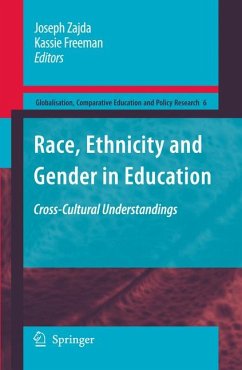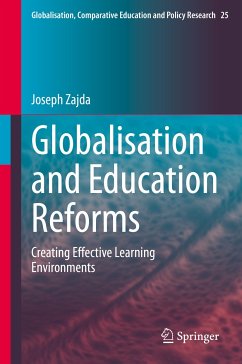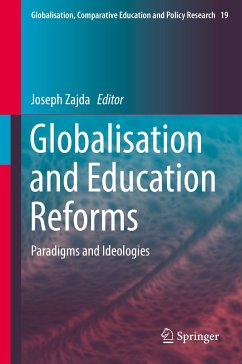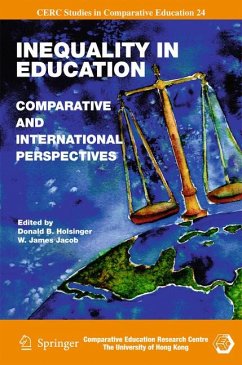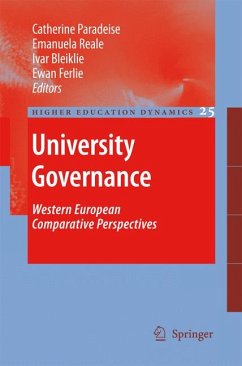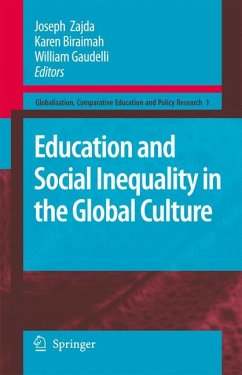
Education and Social Inequality in the Global Culture (eBook, PDF)
Versandkostenfrei!
Sofort per Download lieferbar
72,95 €
inkl. MwSt.
Weitere Ausgaben:

PAYBACK Punkte
36 °P sammeln!
A major aim of Education and Social Inequality in the Global Culture, which is the first volume in the 12-volume book series Globalisation, Comparative Education and Policy Research, edited by Joseph Zajda and his team, is to present a global overview of the relationship of education, socio-economic status, and globalization. By examining some of the major education policy issues, particularly in the light of recent shifts in education and policy research, the editors aim to provide a comprehensive picture of the intersecting and diverse discourses of globalization, education, and policy-drive...
A major aim of Education and Social Inequality in the Global Culture, which is the first volume in the 12-volume book series Globalisation, Comparative Education and Policy Research, edited by Joseph Zajda and his team, is to present a global overview of the relationship of education, socio-economic status, and globalization. By examining some of the major education policy issues, particularly in the light of recent shifts in education and policy research, the editors aim to provide a comprehensive picture of the intersecting and diverse discourses of globalization, education, and policy-driven reforms. The spirit of dialogical encounter has very soundly directed editors' efforts in organizing this volume. The editors' task is to deepen, and in some cases open widely, diverse and significant discourses related to globalization, social stratification, and education. The impact of globalization on education policy and reforms is a strategically important issue for us all. More than ever before, there is a need to understand and analzse both the intended and the unintended effects of globalization on e- nomic competitiveness, educational systems, the state, and relevant policy changes-all as they affect individuals, educational bodies (such as universities), policy-makers, and powerful corporate organizations across the globe. The evo- ing and constantly changing notions of national identity, language, border politics and citizenship which are relevant to education policy need to be critiqued by appeal to context-specific factors such as local-regional-national areas, which sit uncomfortably at times with the international imperatives of globalization.
Dieser Download kann aus rechtlichen Gründen nur mit Rechnungsadresse in A, B, BG, CY, CZ, D, DK, EW, E, FIN, F, GR, HR, H, IRL, I, LT, L, LR, M, NL, PL, P, R, S, SLO, SK ausgeliefert werden.




